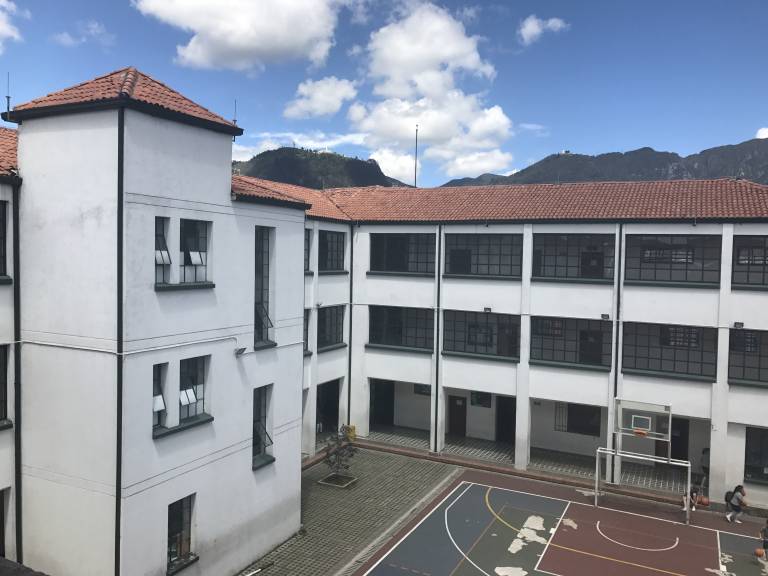UNESCO Chair in DRR-RE organises regular seminar and training on the topics related to the resilient school infrastructure. Below you can find details on previous and upcoming courses and seminars.
Next webinar:
Upcoming webinars/courses:
|
Past webinars/courses and recordings
YouTube Widget Placeholderhttps://www.youtube.com/watch?v=RnmUcWzutds
Human-centred and data-driven approaches to enhancing urban resilience
Date: 28 Oct 2024
YouTube Widget Placeholderhttps://www.youtube.com/watch?v=iBjONwcsVVY
Multi-hazard interaction, cascading impacts, and indicators
Date: 25 Sep 2024
Enhancing Resilience: Integrating Local Wisdom and Vernacular Construction
Date: 10 May 2024
FaMIVE - Recent developments and applications - Day 1
Date: 10 May 2024
FaMIVE - Recent developments and applications - Day 2
Date: 10 May 2024
Infrastructure Resilience Initiatives: The Philippine Experience
Date: 11 April 2024
Multi-hazard and Risk-informed System for Enhanced Local and Regional Disaster Risk Management
Date: 7 March 2024
YouTube Widget Placeholderhttps://www.youtube.com/watch?v=-tMHDvNgRM0&t=5s
Global symposium on recent advancements and the way forward in confined masonry construction - Day 1
Date: 8 - 9 February 2024
Global symposium on recent advancements and the way forward in confined masonry construction - Day 2
Date: 8 - 9 February 2024
From post-earthquake forensics investigations to recovery-based design
Date: 19 Jan 2024
SimCenter: A computational framework to simulate the impacts of natural hazards
Date: 16 Nov 2023
The role of engineers in accelerating the implementation of Disaster Risk Reduction and Resilience
Date: 30 Oct 2023
Experience and Lessons on Seismic Retrofitting of Masonry Buildings in Nepal
Date: 21 Sep 2023
The example of Kahramanmaraş, Turkiye earthquakes in the management of post-disaster relief, recovery and reconstruction experience
Date: 13 July 2023
Earthquake Performance of School Buildings in Indonesia
Date: 22 June 2023
Structural Resilience of RC and Masonry Buildings - Day 1
Date: 04 - 05 May 2023
Structural Resilience of RC and Masonry Buildings - Day 2
Date: 04 - 05 May 2023
Seismic Losses Scenarios using SELENA - Day 1
Date: 23-24 March 2023
Seismic Losses Scenarios using SELENA - Day 2
Date: 23-24 March 2023
System Resilience: Application of Bayesian Networks for Decision-making in Civil Eng. problems - Day 1
Date: 9-10 March 2023
System Resilience: Application of Bayesian Networks for Decision-making in Civil Eng. problems - Day 2
Date: 9-10 March 2023
SMARTnet – Non-Engineered Seismic Design 2.0
Date: 16 February 2023
Appropriate structural engineering in humanitarian and international development contexts
Date: December 2022
Towards an integrated assessment strategy for masonry structures
Date: November 2022
The Democratisation of Cat Models Webinar
Date: October 2022
Engineering based fragility and vulnerability assessment - Day 1
Date: September 2022
Engineering based fragility and vulnerability assessment - Day 2
Date: September 2022
Classification and vulnerability evaluation of school buildings for seismic risk reduction - Day 1
Date: July 2022
Classification and vulnerability evaluation of school buildings for seismic risk reduction - Day 2
Date: July 2022
Probabilistic Risk Assessment for Disaster Risk Reduction - CAPRA Platform
Date: April 2022
Open Educational Resources
- Online Course - Simplified Structural Assessment for Seismic Fragility Analysis
This course aims to teach simplified structural assessment approaches for the development of fragility curves. Fragility curves are essential components of earthquake risk assessments and are developed and used by researchers, civil engineering consultants and insurers.
The course brings state of the art technqiues and tools to developers of fragility curves, promoting a consistent approach to the inclusion of uncertainty. It is aimed at students with an MSc level education in an engineering subject.
- Data Collection for Creating Baseline Information on Schools
To create a school infrastructure baseline, robust data collection tools are required to systematically capture and update key information about school buildings and facilities. Different approaches can be used to complement the establishment of a baseline for quantitative risk assessments, or to conduct a post-disaster damage assessment.
The GLOSI provides a systematic data collection framework, tools and guidance which support countries in creating a school infrastructure baseline using available technology.
- Structural Taxonomy (Classification) of School Building
The GLOSI taxonomy classifies school buildings based on 12 parameters which are known to govern the building’s structural performance. These parameters can be broadly categorized into primary (first 3 parameters) and secondary (remaining 9 parameters). The output of the taxonomy is a building’s string of attributes related to each parameter. The taxonomy string can be seen as the building’s DNA.
The development of the GLOSI taxonomy stems from recent World Bank engagement information on school buildings in Nepal, El Salvador, Peru and the Kyrgyz Republic.
- Fragility & Vulnerability Functions for Selected School Building Types from Different Countries
A systematic methodological framework is used to derive both seismic fragility and vulnerability functions for all index buildings included in the Catalog of Building Types. Here you can find information on how the functions were derived, as well as references for further reading. The use of these functions for a specific quantitative risk assessment might require calibration to reflect the performance of a given building type particular to a country or region.
This framework promotes the use of a performance-based assessment as an instrument to identify cost-efficient seismic retrofitting solutions that can be implemented at scale across large portfolios of school buildings at risk from natural hazard events.
- Strengthening Solutions for Typical School Building Types
This online resource provides vulnerability reduction solutions for selected load bearing masonry and reinforced concrete school building types.

 Close
Close


